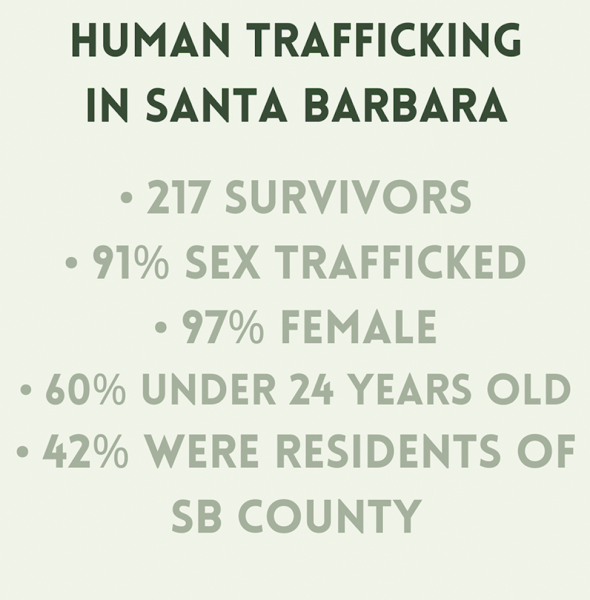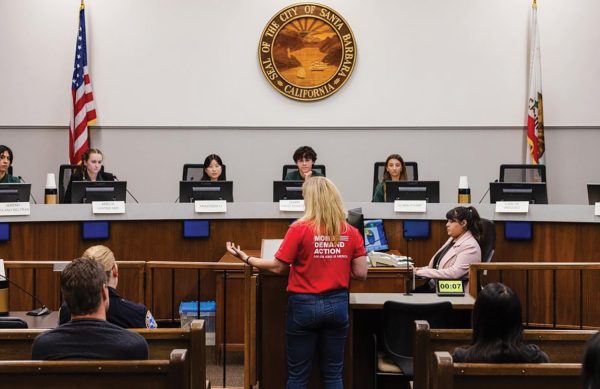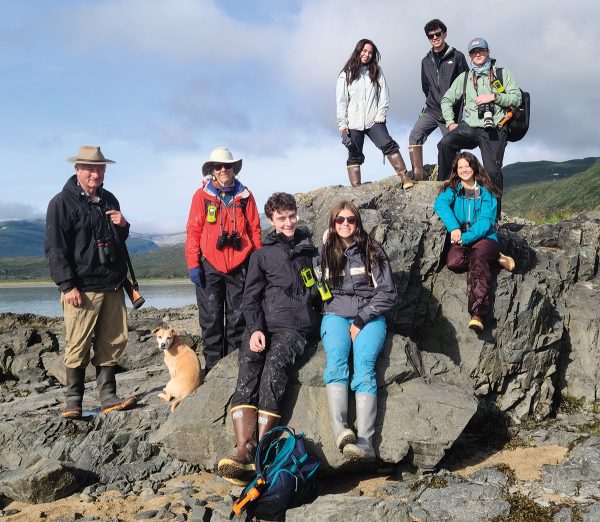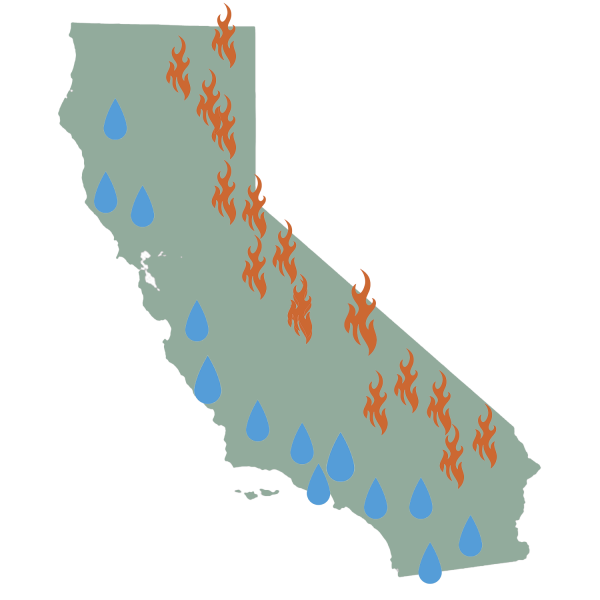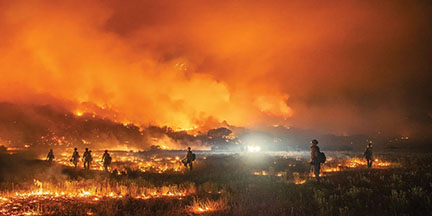The Harsh Realities of Climate Change
As more climate-change related issues begin to emerge, those with the most resources are able to manage the effects, while those with less are forced to face the harsh reality of a changing climate.
December 18, 2022
Private jets, cooling and heating systems, and gas-guzzling “luxury” vehicles are deemed necessary to the upper echelon of American society. Unfortunately, there are consequences to these luxuries. Not having to worry about the environmental costs in one’s daily life means it is easier to forget the imminent ecological effects of climate change that loom overhead. Climate change most affects those with the fewest resources.
In August and September of this year, Santa Barbara experienced an unprecedented heat wave. In order to stay cool, assets like air conditioning became even more essential. “My family was fortunate enough to have air conditioning the week of the heat wave, but many houses in Santa Barbara aren’t equipped with sufficient AC systems,” said Mason Siegel ‘25.
That includes senior Emma Schubert, who said, “When Santa Barbara was hit with the heat wave back in September, the absence of air conditioning in my house required me to do more of my work outside since the outside temperature was lower than inside my home.”
In communities where resources are far scarcer, a bout of extreme weather can make houses and schools uncomfortable and dangerous environments. “People living in urban centers will be experiencing issues such as infrastructure failure because they are most likely reliant on older grids which are more prone to failure,” said environmental science instructor Erik Faust. Urban areas rely on an advanced power-sharing system to effectively provide electricity to everyone who needs it.
When it’s too hot, these systems shut down, “Blackouts could be problematic in terms of air conditioning and in a broader context, in terms of work, productivity, and access to healthcare,” Faust said.
Working remotely has become an increasingly more viable option. This way, those with more resources have a way out when disasters like freak floods caused by climate change strike.
“Wealthy people, they have movability,” Faust said. “They will be able to keep doing business as usual, whereas, for people who are already at the lower levels of socioeconomic status, who need to go into work, if their work gets disrupted, their wages get disrupted.”
In disaster-stricken cities, residents who can’t pick up and leave are left to fend for themselves against natural disasters including heat waves, hurricanes, and other extreme weather conditions that are intensifying due to climate change.
“This makes them more vulnerable to flooding, which could pollute sanitation systems and make drinking water unusable,” said Faust.
From undrinkable water to the erasure of millions of homes, it is clear that those experiencing poverty will bear the brunt of the consequences of climate change.
However, people who contribute to climate change do not face the same repercussions.
“Generally, people who are going to be more affluent will be using more resources, and more resources just means more greenhouse gas emissions,” said Faust
Although it may not seem like it, the future of sustainable energy is promising as an alternative to trading cash for fossil fuels emerges.
“I definitely believe that access to clean resources and sufficient energy is a luxury that many people are not able to afford. It is extremely accessible in our community, so it is important to understand our jobs as citizens to support a cleaner planet,” Emma said.
Programs that are assessing these exact criteria are taking shape across the world as the urgency of the climate crisis heightens.
“More affluent countries are now in a position where they can invest in renewable energy, more efficient methods in providing goods and services, which is slowing leading to a decline in national per capita greenhouse gas emissions,” said Faust.
As countries are taking steps to utilize funds to battle climate change by investing in renewable energy and focusing on cutting their emissions, the planet will continue to have people fighting to protect it.











